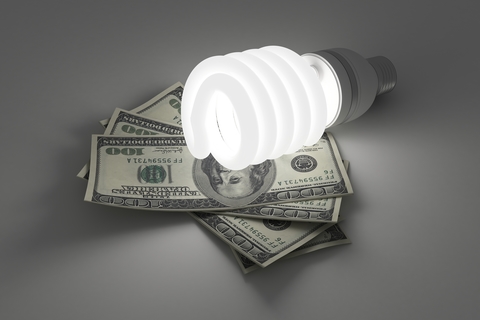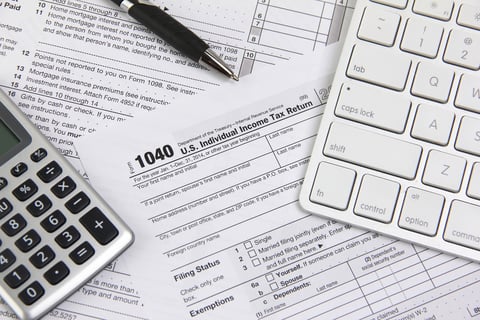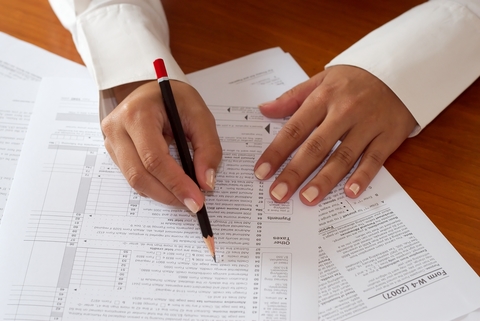ECI Comfort is a HVAC Contractor based in Langhorne, PA.
Unfortunately, we cannot answer specific questions about the system in your home. Please contact the contractor who did your system installation to confirm if your system qualifies for a tax credit. You can also confirm with your tax professional when filing your tax return. Or, find more information at https://www.dsireusa.org/.
Thank you for your interest in our blog!
Save Up to $500 On Energy-Efficient Home Heating And Cooling in 2021
Here’s some good news for a change from Washington, DC: You can get up to $500 in tax credits when you install an energy-efficient air conditioner, mini split, heater, boiler, or other HVAC appliance, thanks to a federal rebate incentive.
In late January 2020, Congress renewed the Non-business Energy Property Tax Credit or Section 25 C of the tax code for the year. They also made the legislation retroactive from December 31, 2017, through December 31, 2020. As of January 2021, the credit is available through December 2021.
That means you can not only take advantage of these financial incentives going forward.
If you installed an appliance over the last two years that qualifies, you can now also reap the benefits.
It’s an option that didn’t exist when homeowners had them installed.
Just In Time For Spring
This announcement comes just in time for people considering renovations this spring, or whether or not they need a new air conditioner to make it through the summer.
And, as of now, the credits expire at the end of 2020. There’s no guarantee it’ll be around next year, so it’s worth considering whether this is the time to upgrade your home.
The new legislation came about in large part thanks to the efforts of our colleagues at the Air Conditioners Contractors of America.
So, we spoke with Todd Washam from the ACCA to get some more information on the program. We’ll provide some of his comments below.
In this article, we’ll walk you through:
- What is eligible
- Restrictions on the credits
- How the tax credits work
- How to apply
- What may come next
You can read more about the program below. Or, go right here to apply when you’re ready.

And, we're always available if you have any questions about an installation you're planning, or something you had installed over the past two years.
HVAC Appliances Eligible for Non-business Energy Property Tax Credits [2020]
Here’s an overview of the HVAC appliances eligible for the Non-business Energy Property Tax Credits this year and how much you can get back. Each model must be Energy Star-certified:
-
Heat Pumps ($300 Tax Credit)
-
Central Air Conditioning ($300 Tax Credit)
-
Hot Water Boilers ($150 Tax Credit)
-
Furnaces and Fans ($150 Tax Credit)
-
Water Heaters ($300 Tax Credit)
As a rule of thumb, any item you purchase must be Energy Star-certified.
This designation means the manufacturer has proved the model uses significantly less energy than comparable models but produces the same or better results.
In other words, they’re appliances that use less energy, which is better for the environment. And, using less energy means lower utility bills — which is better for your wallet.

You can browse the specific eligibility requirements here. And, if you don’t know what all those abbreviations mean, here are the explanations.
Now bear in mind, if you choose something that doesn’t meet the requirements, you won’t get the credit. That makes working with a certified, licensed contractor your best bet.
Understanding all those specs and requirements is a significant part of our job. So, we can help make sure you’re all set.
Restrictions on the Non-business Energy Property Tax Credits
To take advantage of the Non-business Energy Property Tax Credits, you must install the new appliances in an existing home. That means no new construction or rentals.
And, you’ll either get 10 percent of the cost up to $500 or the set prices above.
Now, most of the HVAC equipment caps out at $300 for the credits. In all, you can apply for up to $500 in your lifetime.
Finally, when you apply, you’ll provide information, including the Manufacturer’s Certification Statement, to show the efficiency ratings.
Applying and How the Tax Credits Work
To apply for the tax credits once you have your new appliances installed, fill out IRS Form 5695 here. It’s a standard IRS doc, and you can read up on the instructions for it.
In a nutshell, however, you’ll enter information based on the number of units and their model information.
Then, file this with your taxes (it’s also available digitally if you’re using TurboTax or other online products when you file).

After that, it works like any other tax credit: The amount of the credit goes against the amount you owe.
So, if at the end of the year, you owe $1,000 in taxes, then after a $300 credit, you only owe $700. If you owe less than the credit, you’re due a refund (that, of course, is combined with any other credits).
What’s Next For Energy Efficiency Tax Credits?
According to Todd Washam, vice president of Public Policy and Industry Relations for the Air Conditioning Contractors of America, if all goes well, Congress’ reinstatement of these credits will be only a stepping stone.
“This is a temporary victory,” he said. “Our goal is to see it extended through 2026.”
The ACCA’s bigger push the Home Energy Savings Act they helped get introduced as a bill. If it goes through, this act will increase the lifetime cap on credits from $500 to $1,200.

And, many of the $300 credits would double as part of an incentive for homeowners to invest in multiple energy-efficiency replacements and projects.
A significant difference, however, would be the requirement that contractors install the equipment according to ACCA standards.
Although it may sound like an extra layer of red tape, it’s a move that, according to Washam, provides better savings in the long run.
“Currently, half of HVAC equipment today is not installed correctly,” he said, citing statistics from the National Institute of Standards and Technology. “Those systems will only operate at 60 percent of their labeled efficiency.”
Making sure all new systems are installed correctly, Washam continued, “Means consumers see the benefit and taxpayers are getting their money’s worth.”
Meanwhile, you can find more savings and rebate opportunities from PECO. Like other utility companies around the country, our electricity provider offers incentives for installing high-efficiency heating and cooling equipment.
And, Pennsylvania also released new LIHEAP funds this year to combat rising energy prices.
If you’re considering an HVAC upgrade in the Delaware Valley, call ECI to make sure your new system will save you money on energy bills and reduce your tax burden. We follow all industry standards, including ACCA requirements, to ensure your equipment works correctly and at its peak efficiency.







